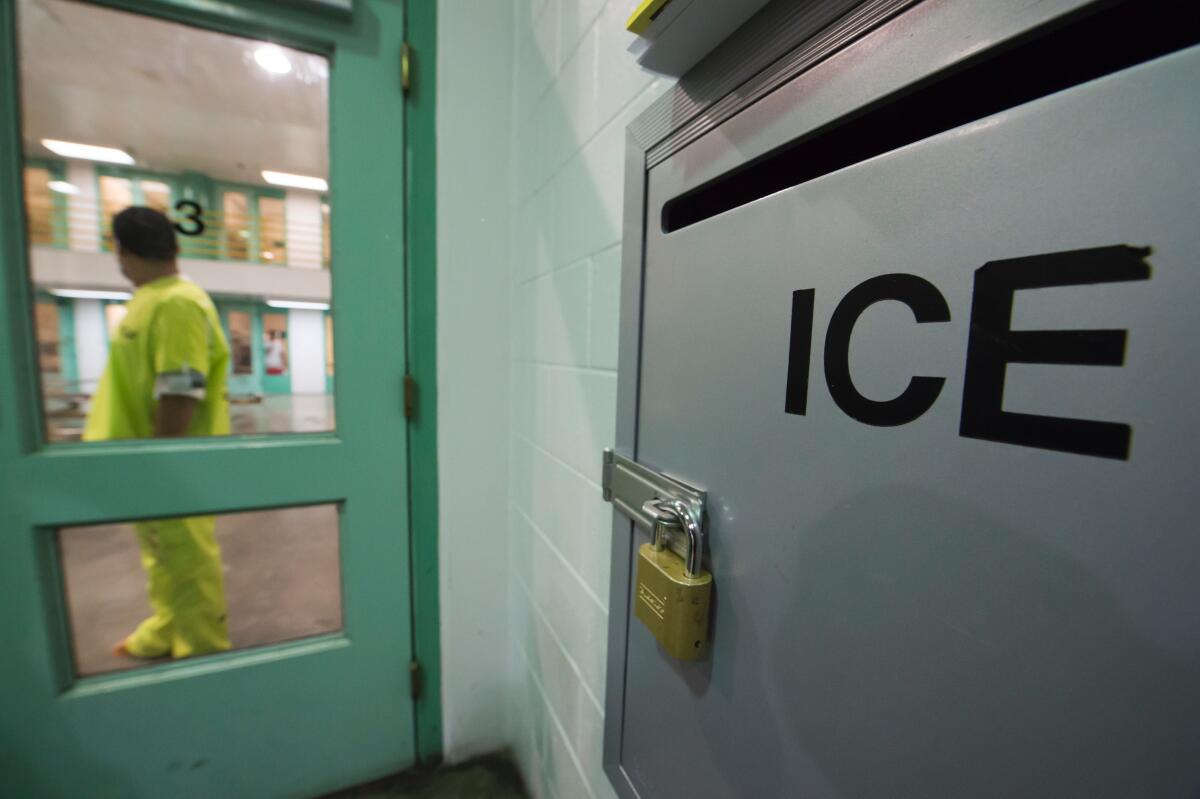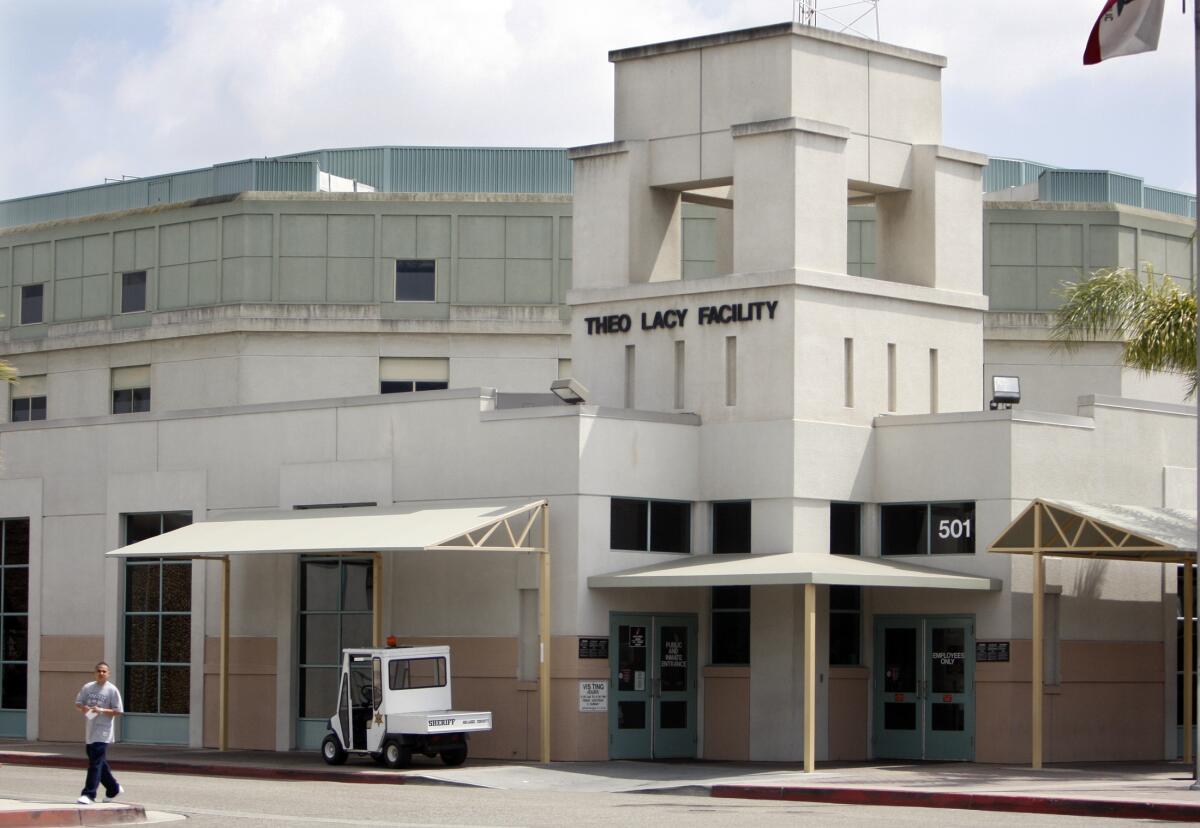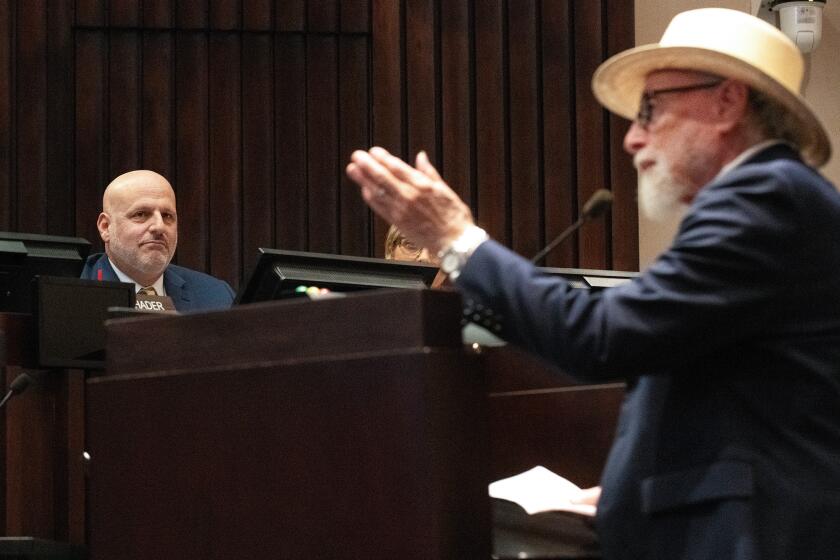Orange County Sheriff’s cooperation with ICE sees spike in inmate transfers

The Orange County Sheriff’s Department handed about 220 people over to Immigration and Customs Enforcement custody last year after they finished serving jail time.
A stark departure from 2022, when only 17 inmates were handed over to ICE for potential deportation, the tally fueled an ongoing a debate over Orange County Sheriff Don Barnes’ voluntary cooperation with immigration authorities.
Barnes defended his department’s policy during Tuesday’s Orange County Board of Supervisors meeting, where an annual forum required by the Trust Act was held on the issue.

“A change in the numbers is not reflective of more or less action by law enforcement,” he said. “Our policy remains unchanged. We simply do what the law allows.”
Since taking effect in 2018, the California Values Act, commonly known as the “Sanctuary State” law, has prohibited ICE transfers, save for inmates convicted of serious or violent offenses. Barnes has publicly opposed the law while otherwise claiming to abide by it.
Before filing into the forum, a coalition of immigrant rights groups held a Tuesday morning press conference to denounce what amounted to a 1,200% increase in ICE transfers between 2022 and 2023.
Activists also demanded a halt to any future such transfers.
Jonathan Bremen, a staff attorney with Public Law Center, deemed the data “alarming” in comments to supervisors during the forum.
“The overwhelming majority of community members transferred by the sheriff ICE were born in Mexico or Vietnam,” he said. “This data is way out of proportion with the county’s overall demographics.”
Pro-Palestinian activists seek ouster of Rabbi Rick Steinberg from the commission as his supporters decry ‘antisemitism.’
According to an analysis of last year’s data by the Harbor Institute for Immigrant and Economic Justice, 43% of transferred inmates were born in Mexico and 40% were born in Vietnam.
The police departments of Garden Grove, Westminster and Santa Ana were noted as the top three arresting agencies for people who were incarcerated and then handed over to ICE by sheriff’s officials.
“I do not determine the demographics,” said Barnes in response to the criticism. “I do not determine the race or the gender or sex of individuals, or any other factor. They either objectively meet the criteria, or they objectively do not meet the criteria. If they meet it, we make them available. If they don’t meet it, we do not make them available.”
Vincent Tran, organizing director for VietRise, urged supervisors to end ICE transfers in Little Saigon, a hub for the largest Vietnamese American population in the nation, and throughout the rest of the county.
“With the 50th anniversary of the end of the Vietnam War [next year], we should be concerned that our families are continuing to be separated,” Tran said. “These harmful acts of ICE are … tearing our communities apart.”

Kelvin Roman shared his experience of being transferred to ICE from Theo Lacy Jail after being stopped by Tustin PD in 2019 for having tinted windows. He was arrested on suspicion of auto theft and possessing forged documents, crimes he was never charged with.
The ACLU has since filed a lawsuit alleging that Tustin police and the O.C. Sheriff’s Dept. violated the California Values Act.
“I spent nine months at Adelanto Detention Center,” Roman said. “Right now I’m facing my deportation because of the illegal transfer they made. In my future, I don’t know what’s going to happen with my family, my kids.”
Immigrant rights advocates are also concerned that last year’s spike may signal a return to pre-pandemic transfer rates.
Sheriff’s officials transferred 717 inmates into ICE custody in 2018, the first year under the California Values Act. But the number of transfers steadily declined to just 17 in 2022.
Last year, 547 inmates released from Orange County Jail had ICE detainers. Under the California Values Act, 302 were eligible for ICE transfers. Immigration authorities took 221 into custody.
In past forums, sitting supervisors declined to make any comments or ask questions.
This time around, Supervisor Vicente Sarmiento took the opportunity to raise issues about potential violations of constitutional protections by way of faulty databases and the cost of processing transfers during the forum, which he suggested would better serve the community outside of a discussion held at 10 a.m.
Barnes noted that the only costs associated with processing transfers were associated with training sessions for his deputies to ensure compliance with state law.
Three of Sarmiento’s supervisor colleagues had no questions or comments.
“I think that this county should reconsider its position,” Sarmiento said before the forum ended. “I certainly see that it’s unlikely, at best.”
All the latest on Orange County from Orange County.
Get our free TimesOC newsletter.
You may occasionally receive promotional content from the Daily Pilot.





